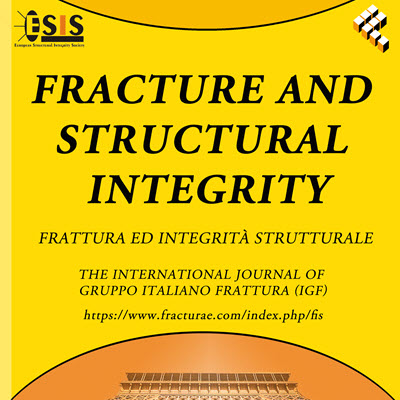Fracture and Structural Integrity: The Podcast
Stay at the cutting edge of fracture mechanics and structural integrity research with the official podcast of the Fracture and Structural Integrity journal. Join us for insightful interviews with top researchers, in-depth discussions of groundbreaking papers, and explorations of emerging trends in the field.
RSS Spotify YouTube Amazon Music
Machine learning-assisted fracture prediction: Integrating synthetic and experimental data for quasi-static notch failure analysis
2025-11-23
https://www.fracturae.com/index.php/fis/article/view/5669
Machine learning has emerged as a powerful tool in various scientific fields for developing data-driven models, reducing the need for extensive physical testing. In this study, the fracture load was first predicted using Theory of Critical Distances (TCD) for experimental data. Further, this study presents a machine learning-based framework for the prediction of quasi-static fracture loads of U-notched polycarbonate specimens using a combination of experimental and synthetic data. Experimental data was obtained for eleven notch configurations, while synthetic data was generated through fracture mechanics-based simulations using PYMAPDL. XGBoost was trained on experimental and synthetic training datasets, evaluated against a fixed randomly selected experimental test set. Model performance was evaluated using MAPE, MAE, RMSE values as R2 varied significantly with test set sampling and random state selection. This study systematically evaluates how varying the proportion of synthetic data influences model performance, offering a scalable strategy to minimize experimental dependence without compromising accuracy. Experiment-only dataset provided the highest accuracy, while hybrid models performed reasonably well. The full dataset model combining all experimental and synthetic data, achieved the most robust and accurate predictions, with errors ranging within ±5% and yielding the lowest MAPE of 1.18% and MAE of 78.73 N. It is suggested that synthetic data can significantly enhance the training of machine learning models, but cannot completely replace the experimental data, especially in critical applications.
DownloadFiletype: MP3 - Size: 3 MB - Duration: 14:47m (320 kbps 44100 Hz)
Powered by Podcast Generator, an open source podcast publishing solution | Theme based on Bootstrap
